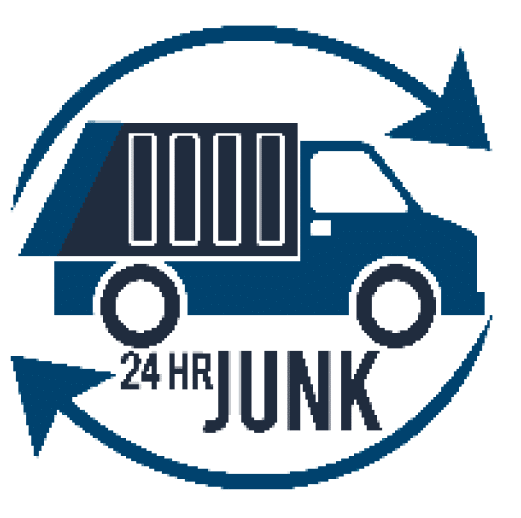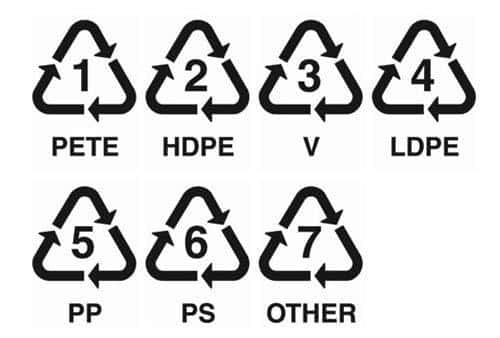How to recycle plastics
We all know we’re supposed to be recycling our plastics. But did you know that not all plastics are recyclable? There is actually a key to what can and cannot be recycled right on a lot of our plastic goods themselves!
If you look closely at a water or soda bottle or plastic food container, for example, you will find a small number encased on a triangle composed of arrows. This is the key for how to recycle plastics. Here is a quick guide on what you can place in your recycling bin, and what needs to be tossed into the trash, based on those recycling numbers.
#1 PETE or PET = polyethylene terephthalate: Found in: soft drink or water bottles, fruit juice containers, detergent and cleaners bottles, cooking oil, peanut butter jars, salad dressing bottles
Can it be recycled? Yes: recyclable but not reusable
This plastic is commonly used in consumer products, mostly in drink bottles and intended for single-use applications. It is difficult to decontaminate. PET is recyclable; crushed and shredded to make new bottles or polyester fibers for garments, carpets and other products.
What you can do: Use reusable drink containers
#2 HDPE = high-density polyethylene: Found in: milk and water jugs, bleach and detergent bottles, shampoo and bath soap bottles, plastic bags, household cleaner bottles and butter tubs
Can it be recycled? Yes: reusable and recyclable
This stiff plastic is used for milk jugs, detergent bottles, oil bottles and toys. Since it is hard-wearing, it does not break down easily under sunlight or extreme temperatures. Therefore, it is used for plastic lumber, picnic tables, waste binds, truck bed liners and raised garden beds.
What you can do: Cut down on disposable bottles
#3 PVC = polyvinyl chloride: Found in: plastic piping, food wraps, blister packaging, cooking oils, some detergent bottles, shower curtains, lawn furniture
Can it be recycled? No: do not use for reapplication with food
This soft and flexible plastic contains numerous toxins that can leach out throughout its lifetime and is impervious to sunlight and weather conditions. It is often used to make garden hoses, raised beds and window frames.
What you can do: Use food wraps other than plastic wrap
#4 LDPE = low-density polyethylene: Found in: plastic grocery bags, dry cleaning bags, flexible film packaging, squeezable bottles, six pack rings, some furniture
Can it be recycled? Mostly no: reusable but not always recyclable
This plastic is found in shrink wraps, most grocery store bags and bread packaging and is considered relatively safe for use, with less toxins. It is recycled into plastic lumber, garbage can liners and floor tiles.
What you can do: Use cloth grocery bags.
#5 PP = polypropylene: Found in: bottle tops, syrup bottles, yogurt tubs, car parts, some food containers
Can it be recycled? Sometimes
This plastic is lightweight and sturdy, with heat-resistant and moisture-barrier qualities. It is used as the liner in cereal boxes, potato chip bags, straws and packing tape. Once recycled, it is used to make battery cases, brooms, bins and trays.
What you can do: Use paper or reusable straws and cloth diapers
#6 PS = polystyrene: Found in: meat trays, egg cartons, plastic plates and cutlery, carry-out containers, clear trays, Styrofoam, packing peanuts, rigid insulation, laminate flooring underlay
Can it be recycled? Sometimes, but not often
This plastic is lightweight and easily formed into shapes. Since it is structurally weak, it can easily be broken up when disposed of and pieces are often found floating in our bodies of water, thus creating a hazard for marine life. It can also be a hazard for humans, as it can leach styrene into food products.
What you can do: Use a reusable coffee mug and reusable food containers
#7 Other: Found in: Five-gallon water containers, DVDs, sippy cups, other plastics including acrylic, polycarbonate, polyactic fibers, nylon and fiberglass, combinations of plastics
This plastic category includes anything not applicable for the other categories and may contain toxins that can leach into food or drinks. Not recommended for heating liquids.
What you can do: Avoid #7 plastics for food service
Let 24hr Junk Sort Your Junk For You: With 24hr Junk, we make keeping a healthy environment as easy as possible for our clients. There’s no need for you to worry about the recycling numbers unless you are keeping a recycling bin. We will pick up your entire load from one pile—there’s no need to sort items when you call 24hr Junk. That’s our job. We cull through each junk haul and sort out items that can be repurposed (like furniture) and those that can be recycled and deliver them to the recycling station. Only then do we dump the rest.
Do your bit for our environment by calling 24hr Junk to schedule your pickup. We’ll be glad to help!


